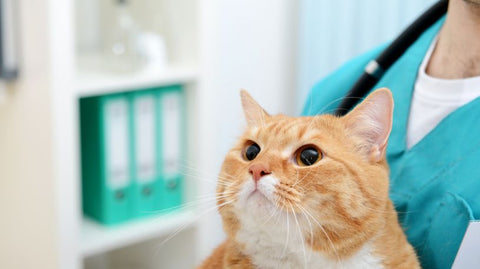

A urinary tract infection, or more commonly known as a UTI, is an infection of the urinary tract that is caused by bacteria. It can affect any part of the urinary tract from the bladder to the urethra.
A UTI can lead to serious health problems such as kidney disease or a life-threatening obstruction of urine flow if left untreated. While UTIs are fairly uncommon in cats, they can still be a concern. That’s why you should know how to prevent and treat your cat’s UTI.
Types Of UTIs
When a UTI occurs, bacteria from the outside enters the urinary tract and multiplies quickly. These bacteria start destroying tissue as they reproduce exponentially. You must treat the bacterial overgrowth with antibiotics before it goes any further. There are many different types of UTIs in cats, but these two are the most common:
– Kidney UTIs– These UTIs can affect any age group, but they usually happen in older cats (over 8 years old). Bacteria tend to cause these infections, though sometimes fungi are the culprit. Called Pyelonephritis, a kidney UTI will affect the kidney and ureters.
– Bladder/Urethra UTIs– Bladder UTIs are the most common UTI in cats that affects any age group. This UTI leads to various other diseases in the bladder and kidneys if left untreated.
The most common symptoms to look out for are if your cat is straining to urinate, reduced frequency or amount of urinating, not urinating at all, pain or discomfort when urinating, and urine tinged with blood. Cats with UTIs will also often urinate around the house, outside of the litter box.
Urinary Tract Issues In Cats
UTIs in cats can signal an underlying chronic problem or other diseases. There may be an obstruction in the bladder that prevents urine from passing, such as a stone. A bladder stone can be potentially dangerous to your cat and will require surgery; kidney stones have the same risk in a different organ.
One of the most common chronic problems to arise from UTI in cats is kidney disease. In some cases when a vet obtains a urine culture, they will conduct blood analysis to verify potential kidney failure.
How To Treat Cat Urinary Tract Infections
UTI treatments for cats include antibiotics and sometimes surgery if something else has been found, like kidney stones mentioned above. Before the condition gets that far, however, you may want to consider potential home remedies and solutions to prevent a UTI or mitigate the symptoms.
Recommended: Home Remedies for a Cat UTI
Hydration is the first priority. The better hydrated your cat is, the easier it is for its body to flush toxins. A remedy like bone broth has amino acids that can reduce inflammation. It will also provide necessary hydration.
Though there is mixed research, cranberries are also thought to possibly aid in preventing UTIs, though we recommend testing the pH of your cat’s urine first. The urine has to be alkaline for cranberries to have the ideal effect. Otherwise, they will cause more pain.
A homeopathic supplement like UTI Support for Cats can help as well. Our formula is designed to ease UTI symptoms and relieve pain for your cat. It has herbs such as Berberis Vulgaris and Cantharis, which treat any discomfort and discoloration related to urine.
Address Cat Health Issues With Remedies From Prana Pets
Prana Pets makes it a priority to enhance your dog or cat’s diet using nature. We test all of our cat urinary and kidney supplements for quality control.
To find out more about natural remedies for your cat, please schedule a call with one of our Pet Health Experts today. We are here to answer all of your questions about pet pain, urinary tract diseases, and other issues.





